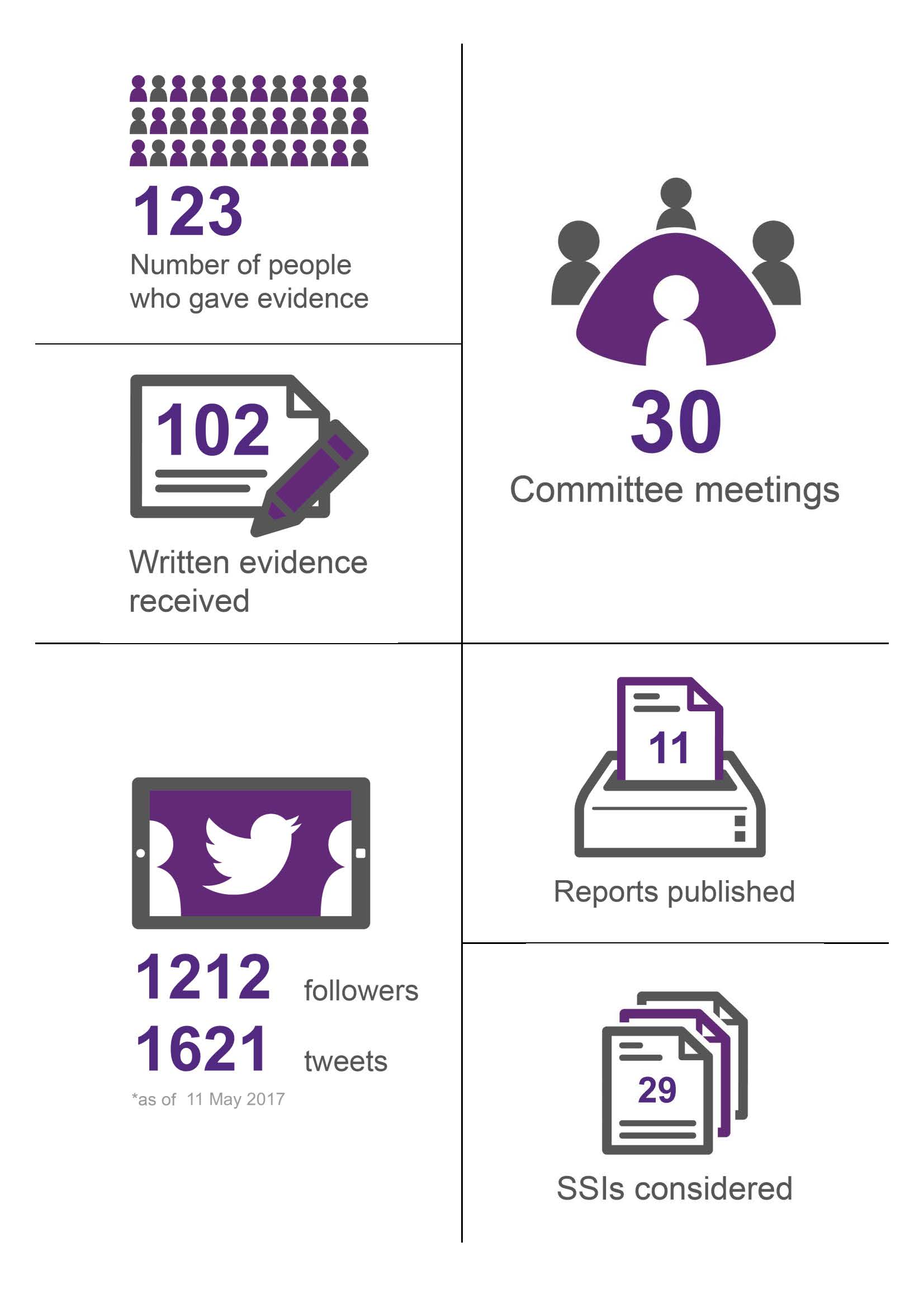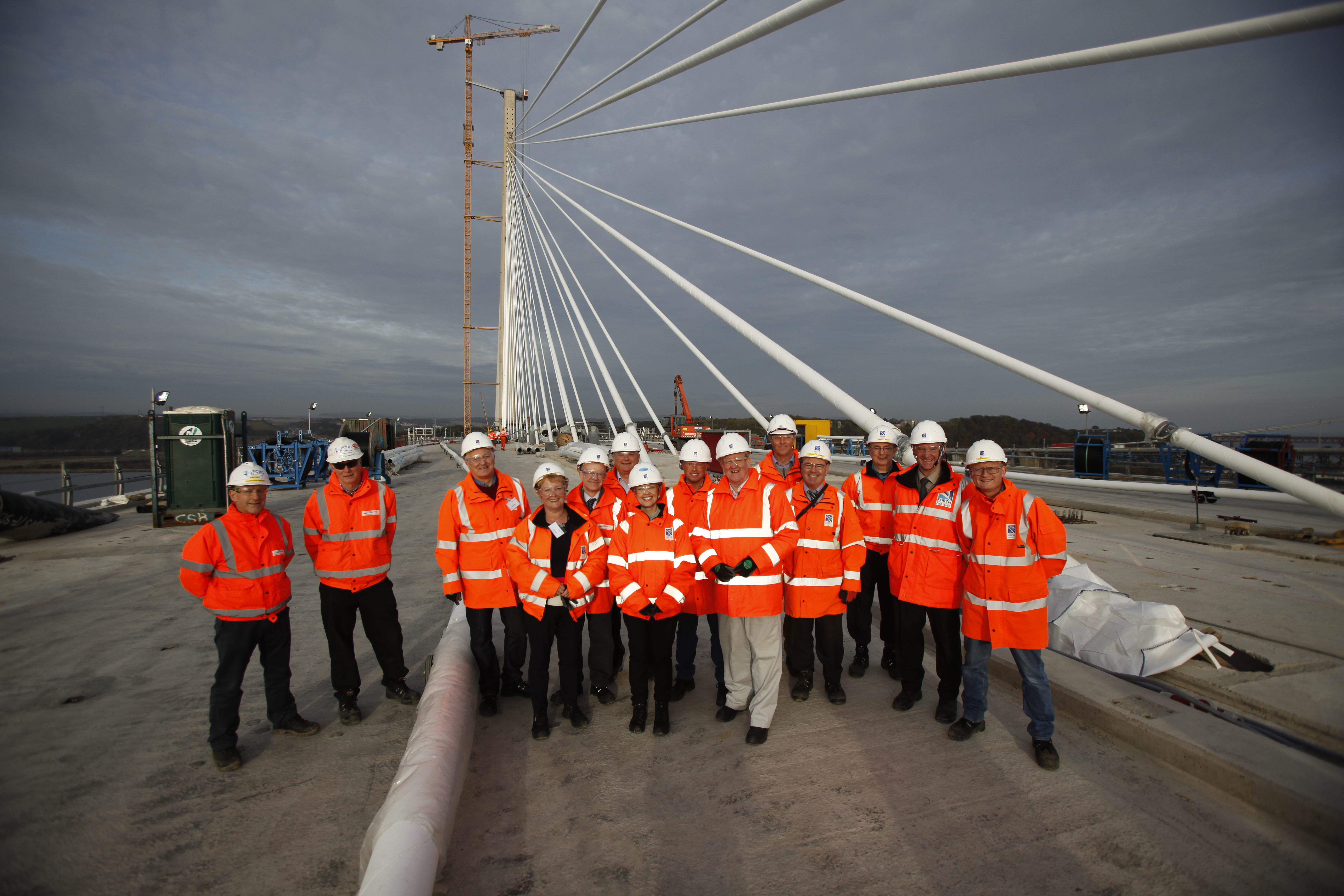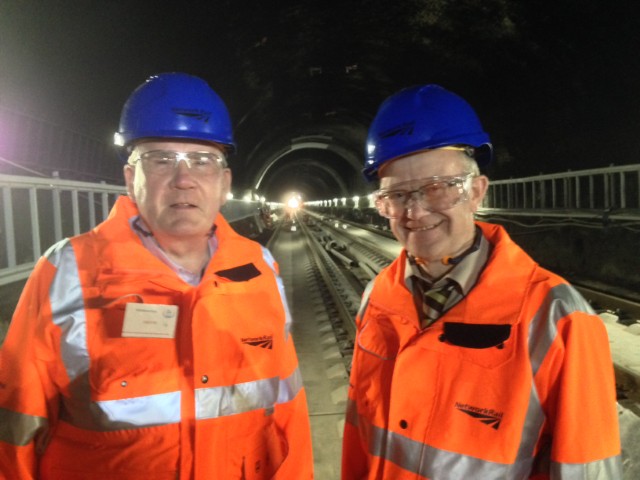Rural Economy and Connectivity Committee
Annual Report
Introduction
This report covers the work of the Rural Economy and Connectivity (REC) Committee during the parliamentary year between 12 May 2016 and 11 May 2017.
The role of the Committee is to scrutinise the Scottish Government’s policies and expenditure on a number of matters including agriculture, forestry, fisheries and aquaculture, crofting, transport, food and drink, digital connectivity and islands issues.

Meetings
During the parliamentary year, the Committee met 30 times. Of these meetings 2 were wholly in private and 11 were partly in private. In general, items taken in private were to consider the Committee's work programme, approach papers and draft reports. Agendas and minutes of all meetings of the Committee, including details of matters considered in private, are published on the Parliament's website. All meetings were held in Edinburgh.
Membership
The membership of the Committee changed during the period covered by this report, as follows:
Emma Harper (from 15 June until 6 September 2016)
Mairi Evans (from 6 September 2016 until 30 March 2017)
Legislation
Seat Belts on School Transport (Scotland) Bill
The Seat Belts on School Transport (Scotland) Bill was introduced on 28 February 2017 with the purpose of making it a legal requirement to fit all dedicated home-to-school transport service vehicles with seat belts.
The Committee's general call for evidence on the Bill garnered 16 responses, primarily from local authorities as well as the Scottish Youth Parliament, Scottish Parent Teacher Council and the Royal Society for the Prevention of Accidents.
The Committee agreed its Stage 1 report on general principles of the Bill on 10 May 2017. This contained the Committee's strong recommendation that the Bill's provisions should be extended to cover excursions or trips organised by schools. The report also stated that the Committee was unconvinced that the £8.92m cumulative costs of implementing the Bill’s provisions, as outlined in the Financial Memorandum, are justified.
UK Parliament Legislation
Throughout the parliamentary year the Committee considered the following –
Subordinate Legislation
During this parliamentary year the Committee considered 29 statutory instruments of which 24 were negative and 5 were affirmative.
Inquiries
The Committee undertook the following piece of scrutiny work during the parliamentary year.
Review of priorities for crofting law reform
On 5 October 2016, the Committee agreed to undertake a short focussed review of priorities for crofting law reform. The Committee's key objectives were to assess current activity by stakeholders and the Scottish Government in working towards a reform of crofting law, identify areas of priority and recommend any action the Committee considered necessary to progress and complement the reform process.
The Committee received 14 submissions in response to its call for views. As part of this work the Committee held four evidence sessions in November 2016, during which it heard evidence from crofting stakeholders and academics.
The Committee published a report on its Review of Priorities for Crofting Law Reform on 9 March 2017 and received a response from the Scottish Government on 31 March 2017. This was followed by a debate in the Chamber on 2 May 2017.
Other evidence sessions
Forth Replacement Crossing
The Committee has monitored the progress of the Forth Replacement Crossing (FRC) construction project, continuing the work undertaken by the Infrastructure and Capital Investment Committee in the previous session. The Cabinet Secretary for Economy, Fair Work and Jobs announced to the Chamber on the 8 June 2016 that the bridge was due to open in May 2017, in line with the contractual date, but six months later than originally anticipated.
The Committee received updates from the Forth Replacement Crossing Project Team in September 2016, December 2016 and March 2017.
On 29 March 2017, the Cabinet Secretary for Economy, Jobs and Fair Work appeared before the Committee to announce that, as a consequence of adverse weather conditions, there would be a further delay in the completion of the project, with the bridge expected to open between mid-July and the end of August 2017.
As part of its monitoring of the project, the Committee paid close attention to the development of the related Public Transport Strategy and the use of the Forth Road Bridge as a dedicated crossing for public transport, cyclists and pedestrians.
Members of the Committee also visited the construction site of the new bridge on 31 October 2016.

Transport
The Committee has looked at a broad range of transport issues during the reporting year, including those related to bus, rail and ferry services and active travel.
On 25 January, David MacBrayne Ltd. provided the Committee with an update on the delivery of the Clyde and Hebrides Ferry Service.
The Committee has paid particularly close attention to the performance of rail services and the management of the rail network in Scotland. It took evidence on these issues from the Minister for Transport and Islands on 1 February and 29 March 2017.
The Committee also received two updates from Phil Verster, the former Managing Director of Scotrail Alliance on the rail network and rail service issues. In July 2017, two Members of the Committee visited Glasgow Queen Street train station to view the progress on tunnel works.

The Draft Climate Change Plan (RPP3)
The Draft Climate Change Plan - the draft Third Report on Policies and Proposals 2017-2032 was laid in the Parliament on 19 January 2017. It was agreed that the Environment Climate Change and Land Reform Committee would take the lead on Committee scrutiny while working in close collaboration with the Rural Economy and Connectivity Committee as well as the Economy, Jobs and Fair Work Committee and Local Government and Communities Committee. The Committee focused its scrutiny on those aspects of the plan which dealt with the agriculture, forestry and transport sectors.
The Committee received 51 submissions after issuing a joint call for evidence with the other three Committees.
After taking evidence from agricultural, forestry and transport stakeholders, the Committee concluded its scrutiny by questioning both the Cabinet Secretary for Rural Economy and Connectivity and the Minister for Transport and the Islands on the draft plan.
Common Agricultural Policy (CAP)
The Committee agreed on the 5 October, as part of their work programme, to receive regular updates from the Cabinet Secretary for the Rural Economy and Connectivity on CAP. The Cabinet Secretary updated the Committee on CAP policy and performance issues on 21 September 2016 following a statement in the Chamber on 13 September and then on 25 January 2017 and 10 May 2017.
In addition, the Committee questioned the Cabinet Secretary for Rural Economy and Connectivity on the financial aspects of CAP during scrutiny of the draft budget 2017-18 on 21 December 2016.
Implications of the outcome of the EU Referendum for Scotland
The United Kingdom voted to leave the European Union in the referendum on 23 June 2016. Prime Minister Theresa May triggered the formal process on Wednesday 29 March 2017. It is anticipated that this will have significant ramifications for policy areas within the Rural Economy and Connectivity Committee's remit.
The Committee agreed to hold evidence sessions to obtain the initial views of stakeholders on the potential impact of the UK's departure from the EU on three key three sectors within the Committee's remit – Fisheries (15 March), Agriculture and Forestry (22 March). On 19 April, the Cabinet Secretary for Rural Economy and Connectivity and the Minister for UK Negotiations on Scotland's Place in Europe appeared before the Committee to discuss the impact of the UK’s departure from the European Union on all three areas - Agriculture, Forestry and Fisheries.
It is anticipated that the Committee will receive further updates on these issues as the negotiations to exit the EU progress. It will also seek opportunities to explore the impact of Brexit on transport, digital connectivity and the food and drink sector.
The Committee also appointed Mike Rumbles MSP as EU reporter to monitor and assess the impact on issues within the REC Committee's remit.
Digital connectivity
On 22 March 2017, the Scottish Government published its latest digital strategy, Realising Scotland’s full potential in a digital world: a digital strategy for Scotland. The strategy restates the Scottish Government's latest commitment to extend superfast broadband access to all by 2021, while encouraging the growth of ultrafast services. At its meeting on 3 May 2017, the Committee took evidence from the Cabinet Secretary for Rural Economy and Connectivity in relation to the specific digital infrastructure and connectivity elements of the strategy. It will continue to monitor the implementation of these aspects of the strategy throughout the parliamentary session.
Budget process
The Draft Budget 2017-18 was published on 15 December 2016. This was significantly later than in previous years, with publication delayed as a consequence of the timing of the UK Government's Autumn Statement. The Committee agreed to hold evidence sessions in advance of the publication of the Draft Budget to hear from stakeholders with an interest in forestry and broadband connectivity respectively. These sessions were held on 23 and 30 November 2016.
The Committee subsequently heard from Fergus Ewing MSP, the Cabinet Secretary for the Rural Economy and Connectivity, on 21 December 2016. In addition to questioning the Cabinet Secretary on the evidence received on forestry and broadband, the Committee took the opportunity to explore with him a range of other portfolio issues based on the figures contained in the published budget documents.
The Committee received 21 responses to its call for written evidence on the Draft Budget.
The Committee published its report on 27 January 2017 and made a number of recommendations on issues such as forestry, broadband and digital connectivity, Common Agricultural Policy Payments, ferries, active travel, rail fares and Prestwick airport. The Scottish Government responded to the Committee's report on 27 February 2017.
Petitions
On 26 April 2017, the Committee agreed to close PE1236 following a commitment from the Scottish Government that detailed design development work for the grade separated junction at Laurencekirk called for in the petition will be taken forward, with an indicative completion date for the project of 2021.
Consideration of PE1598 remained open at the end of the parliamentary year. Full details of the petition are available on the Committee's website.
Equalities
The Committee mainstreamed equalities issues throughout its work in the parliamentary year. For example, the Committee requested information on action being taken to deliver improvements in accessibility when taking evidence on rail and ferry service provision.
The Committee also sought specific engagement with young people when considering the Seat Belts on School Transport (Scotland) Bill. It worked with the Scottish Parliament's education officers to facilitate interactive workshops externally as part of the outreach education programme and internally, with school groups who visited the Parliament. A representative of the Scottish Youth Parliament was also invited to give oral evidence on the Bill.
As part of its inquiry into crofting law priorities, the Committee took evidence from a representative of the Scottish Crofting Federation's Young Crofters group.
Social Media
The Committee continued to develop its use of Twitter to provide updates on its work and to engage with stakeholders and members of the public. It gained 484 new followers and is close to achieving 1300 followers. The Committee also participated in Gaelic Twitter day and ensured major announcements or publications were tweeted in Gaelic throughout the year.